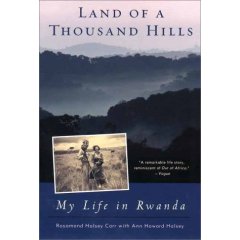World Cup Fever - Football for a Better World
I didn't grow up a huge soccer fan. I played a few years while really young but then the American dominated sports of American football, baseball and basketball took over my time, energy and interest. I get caught up in college football, Super Bowl fever, the World Series and March Madness. They are must see tv for me. Then I moved to Africa.
Yes, I admit, I woke up in the middle of a few nights, found a friendly ex-pat's satellite tv in town, and watched Super Bowls, national championship games, World Series games, etc. but it just wasn't that convenient and there weren't too many people to share the excitement with.
That's when I came to appreciate the World Cup. I lived in Uganda for the 1998 and 2002 World Cups and even though Uganda was not even close to being in the World Cup picture, it became a national month long hyped event even more so than the Super Bowl is here. World Cup games would shut down the nation, especially when an African country was playing, as everyone tuned in either by tv or radio. It was nearly impossible to not get caught up in the hype. And so I came to appreciate more the world's version of football and the hype of the World Cup. I became a big fan and really enjoyed connecting more with all of my African friends.
Yesterday, as I cheered on and became frustrated by the USA's effort in Germany, I couldn't help but think of the simultaneous ecstatic elation being felt in Ghana and really all over the African continent. Ghana's government declared a 1/2 day holiday for the big game. It was reported that they asked their gold mines to temporarily shut down to allow enough electricity to power all the tvs across the country. That's how big football is in the world.
And in light of the things I've been writing about on this blog, I'm amazed at how a single game can represent so much. The world's football, as it turns out, is a great equalizer. How else could a country of 22 million defeat a country of 299 million? How else could a country that doesn't have enough electricity to power their country topple the world's greatest economic superpower? So, while I'm down that the USA is out and we can't generate a little more soccer interest in this country, I'm elated for hundreds of millions of Africans who look to the joy of a single game for a brief respite from their daily life struggles for survival.
On a related note, you can imagine American football, baseball, and basketball are not primary interests of Africans. Football and baseball especially require too much money to play the game and it's a no-brainer that millions of Africans would not get into games that require so much when clean drinking water is such a chore to obtain. Soccer, or "football" in the rest of the world except the U.S., however can be played anywhere. Wrap some banana leaves up tightly to form a ball, plant some sticks in the ground for goals and voilah, you have a football match. It's one of the few team sports that Africans can afford.
So, as we move through the 2006 World Cup the world will soon begin to look towards the 2010 World Cup. Where? For the first time in history the World Cup will be played on African soil in South Africa. They will be promoting it not only as a South African event but as an African continental event. And what a great opportunity it presents for Africa. The theme that will be unveiled July 7th in Berlin will be "Africa's calling" and there will be a concert called "Football for a Better World." So here's to Africa in getting the world's sports spotlight for the next four years. From FIFA's current president, "We can all applaud Africa. The victor is football. The victor is Africa."
Who knows, maybe my family and I will have to celebrate it by cheering on the USA and all African participating countries in person! One thing is for sure, I'll be cheering on the world's sport of football and the opportunities the 2010 World Cup presents to Africa.
For now, Go Ghana Black Stars!



